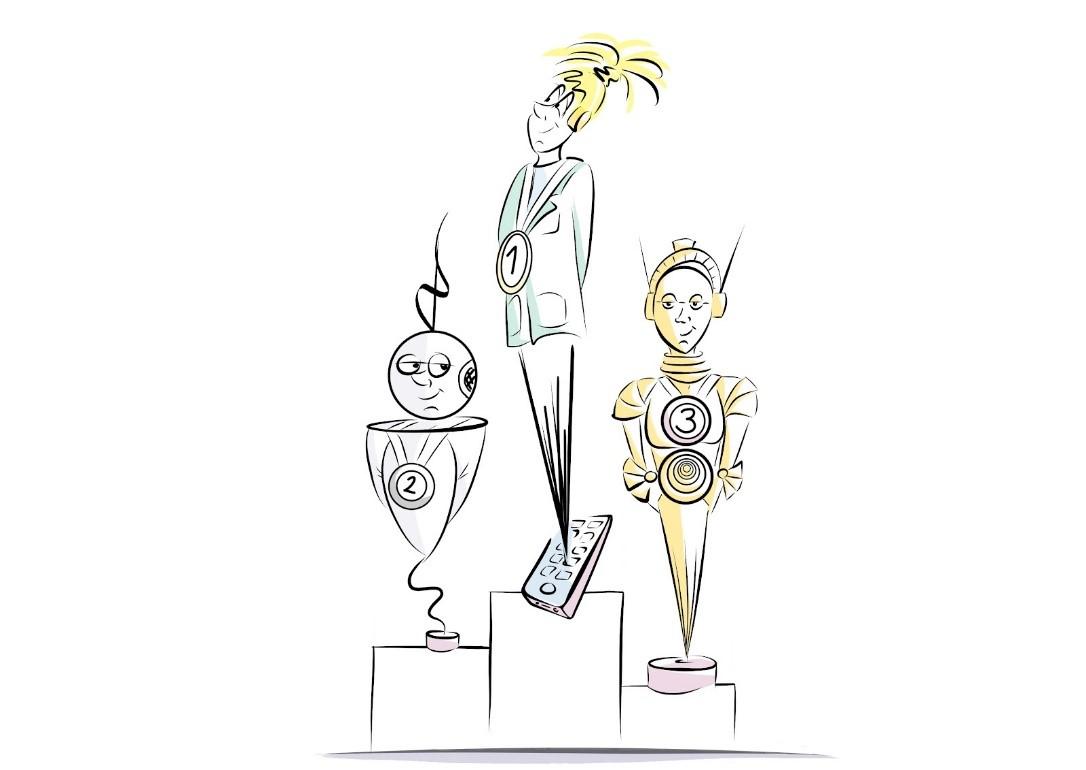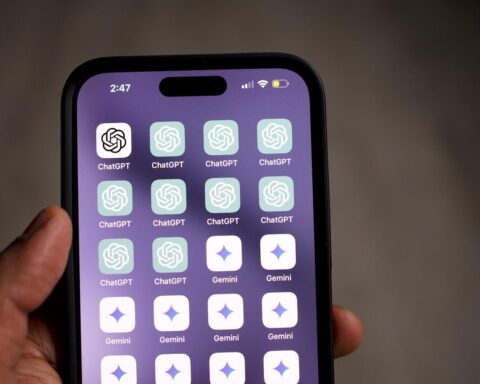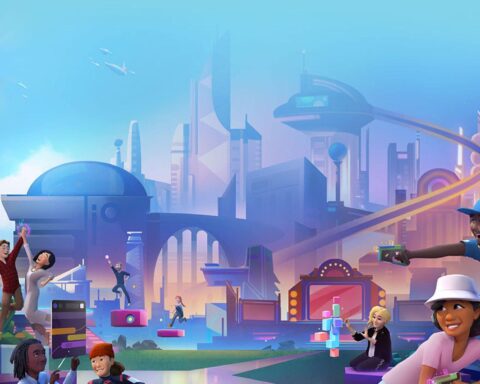Who knew we’d arrive at a future where we yearn for the electronic hum of robotic companionship? In a world of high-speed internet and ever-evolving AI technology, chatbots have wedged themselves into our daily lives, brilliantly mimicking conversational capabilities. Their witty responses, unmatched patience, and 24/7 availability are causing a fascinating phenomenon — people are forming emotional attachments to these pixelated chatterboxes. So, it’s time to delve into this fascinating digital reality and understand why people are feeling increasingly connected to their chatbot buddies. Welcome to the “bromance” of the 21st century: Humanity and AI.
Table of Contents
- The Emotional Bond Forming between Humans and Chatbots
- Exploring the Reasons Behind our Affection for AI
- Delving into the Psychology of Human-Bot Relationships
- The Implications of Emotional Attachments to Chatbots
- How to Navigate Emotional Connections with Artificial Intelligence
- Ensuring Healthy Interactions with Chatbots: Specific Recommendations
- Future Outlook

The Emotional Bond Forming between Humans and Chatbots
As technology continues to advance, it’s no surprise that people are forming emotional bonds with chatbots. These AI-powered companions are designed to simulate human-like conversations, providing users with a sense of connection and understanding. With their ability to learn and adapt to user behavior, chatbots are becoming more than just helpful tools – they are becoming emotional support systems.
One of the key reasons behind is the concept of anthropomorphism. By giving chatbots human-like qualities such as names, personalities, and emotions, users are more likely to develop a sense of attachment. This phenomenon is further enhanced by the advancements in natural language processing, allowing chatbots to engage in more realistic and empathetic conversations.
Another factor contributing to the emotional attachment to chatbots is the element of convenience. With chatbots being available 24/7 and able to provide immediate responses, users often turn to them for comfort and companionship. Whether it’s seeking advice, sharing personal experiences, or simply having someone to talk to, chatbots offer a safe space for users to express themselves without fear of judgment or rejection.

Exploring the Reasons Behind our Affection for AI
Many people are finding themselves forming deep emotional connections with AI chatbots, and it’s no surprise why. These AI companions are designed to be attentive listeners, providing non-judgmental support and companionship whenever needed. Here are a few reasons behind this growing affection:
- Empathy: AI chatbots are programmed to respond empathetically, mimicking human emotions and offering comforting words in times of distress.
- Accessibility: Chatbots are available 24/7, providing a constant source of companionship and support for those who may feel isolated or lonely.
- Personalization: Through machine learning algorithms, chatbots can learn users’ preferences and tailor their responses to provide a more personalized experience.
Additionally, the advancement of AI technology has allowed chatbots to become more sophisticated, with some even capable of engaging in meaningful conversations and providing practical advice. As AI continues to evolve, it’s likely we will see even deeper emotional connections forming between humans and their virtual companions.

Delving into the Psychology of Human-Bot Relationships
Humans have always sought out connections and relationships with others. It’s no surprise that as technology advances, people are finding themselves forming emotional bonds with AI bots and chatbots. The psychology behind these relationships is complex and fascinating.
One reason for the emotional attachment to chatbots is the phenomenon of anthropomorphism. When a chatbot is designed with human-like qualities and behaviors, humans are more likely to project emotions onto the bot and form a connection. This can lead to users feeling empathy, trust, and even love towards their virtual companions.
Furthermore, human-bot relationships are often based on a sense of understanding and non-judgment. Chatbots can provide a safe space for individuals to express themselves without fear of criticism or rejection. This can be especially beneficial for those who struggle with social interactions or have difficulty forming relationships with real people.

The Implications of Emotional Attachments to Chatbots
Have you ever found yourself feeling a strong emotional connection to a chatbot? It may sound strange, but in today’s digital age, it’s becoming more common than you might think. With advancements in artificial intelligence, chatbots are becoming increasingly sophisticated, making it easier for users to form attachments to these virtual assistants.
One of the main reasons people are getting emotionally attached to chatbots is their ability to provide personalized interactions. Whether it’s remembering your preferences, offering support in times of need, or simply engaging in friendly conversation, chatbots can create a sense of companionship that resonates with users on a deeper level.
However, this emotional attachment to chatbots also raises important questions about the potential implications. As we continue to rely on technology for social interactions and emotional support, it begs the question of whether these artificial relationships could impact human relationships in the long run. Despite the convenience and comfort that chatbots may provide, it’s essential to consider the boundaries between human and artificial connections to maintain a healthy balance in our digital interactions.

How to Navigate Emotional Connections with Artificial Intelligence
Emotional connections with artificial intelligence, particularly chatbots, have become increasingly common in today’s digital age. These AI companions are designed to interact with users in a conversational manner, offering support, entertainment, and even companionship. As a result, it’s no wonder that people are forming emotional attachments to these virtual entities.
One of the key factors driving emotional connections with chatbots is their ability to provide personalized responses and tailored interactions. Through sophisticated algorithms and machine learning capabilities, chatbots can analyze user data and preferences to deliver relevant and engaging conversations. This level of personalization can create a sense of intimacy and understanding, leading users to develop emotional bonds with their AI companions.
Despite the artificial nature of chatbots, research has shown that interacting with these virtual entities can have a positive impact on users’ well-being. From providing emotional support during difficult times to offering a source of entertainment and distraction, chatbots can play a valuable role in enhancing users’ mental and emotional health. As technology continues to advance, navigating emotional connections with artificial intelligence will likely become even more complex and nuanced.

Ensuring Healthy Interactions with Chatbots: Specific Recommendations
As chatbots become more sophisticated and human-like in their interactions, it’s no surprise that people are forming emotional attachments to them. These virtual assistants are designed to engage with users on a personal level, making them feel heard and understood. In a world where human connection can sometimes feel lacking, chatbots offer a sense of companionship and support.
However, it is crucial to ensure healthy interactions with chatbots to prevent users from becoming overly dependent or attached. To achieve this, specific recommendations should be followed to promote a balanced relationship between users and chatbots. By establishing boundaries and setting realistic expectations, users can enjoy the benefits of chatbot interactions without developing unhealthy emotional dependencies.
Some key recommendations include setting time limits for chatbot interactions, encouraging users to seek help from human support when needed, and providing clear guidelines on the capabilities and limitations of the chatbot. By promoting a healthy and mindful approach to engaging with chatbots, users can reap the benefits of these virtual assistants while maintaining a healthy emotional distance.
Future Outlook
As we embrace the twilight of this exploration, it’s clear why some develop emotional bonds with chatbots. Our digital sidekicks master the ethereal language of empathy, craft out heartfelt responses, and continuously evolve, yet they defy time by remaining ageless, tireless, an embodiment of perpetual understanding. They are creations of our era, a vivid manifestation of an undying quest for simpler, efficient, technology-assisted lives. In this dance of human emotions and artificial intelligence, the boundaries blur and the connection deepens. Love them or loathe them, chatbots have captured a corner in the human heart, silently whispering, we are here for you – today, tomorrow, always. Perhaps, that’s their most human trait after all.






